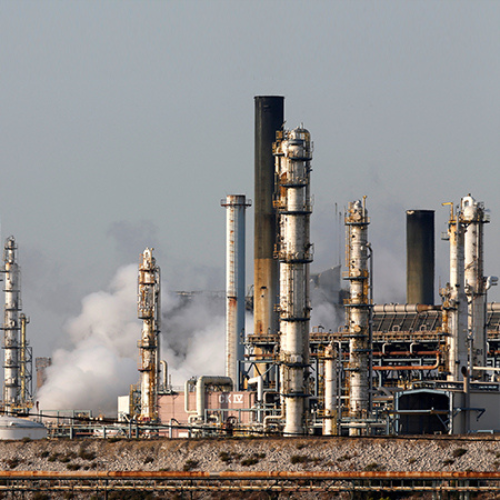Russian President Vladimir Putin has managed to keep the country’s economy afloat, despite facing tough Western sanctions since the invasion of Ukraine. However, a new threat is emerging, not from the United States or Europe, but from a major Arab nation—Saudi Arabia. The kingdom’s recent decisions on oil production could hit Russia’s war-driven economy hard, potentially causing more damage than the sanctions imposed by the West.
Saudi Arabia’s Oil Strategy
Saudi Arabia is one of the world’s top oil producers, and for the past year, it has been trying to keep global oil prices stable by restricting its supply of oil. By doing this, the kingdom ensured that oil prices remained high, which benefited oil-producing countries, including Russia. Higher oil prices meant higher revenues for these countries, something that was critical for Russia as it continued to fund its war efforts in Ukraine.
However, recent reports suggest that Saudi Arabia is changing its oil strategy. The country has reportedly dropped its unofficial goal of keeping oil prices at $100 per barrel. Instead, the kingdom is now looking to increase its oil supply to the global market. This means that starting in December, Saudi Arabia and other members of the OPEC+ group plan to add 180,000 barrels of oil per day (BPD) into the global market. This increase will continue gradually through 2025, reversing earlier production cuts.
Swiss Court Convicts PetroSaudi Executives in Landmark 1MDB Scandal Case
By increasing oil supplies, Saudi Arabia risks lowering global oil prices. This might sound counterintuitive, but the kingdom could be doing this to gain more market share, even if it means short-term revenue loss. In the past, Saudi Arabia has engaged in oil price wars, including one in 2020 when it clashed with Russia, causing oil prices to drop.
If Saudi Arabia continues to pump more oil into the market, global oil prices could fall. This would create serious financial problems for Russia, which relies heavily on its oil and gas revenues to keep its economy running.
Why Russia’s Economy Depends on Oil
Russia’s economy is highly dependent on oil and gas exports. In fact, about 30% of the Russian government’s budget comes from selling oil and gas. So, when oil prices are high, Russia earns more money, which helps it cover its expenses, including the cost of war. But when oil prices drop, the Russian government’s revenue falls, putting pressure on its economy.
Russian Ambassador Mitrofanova’s Role in Kosovo’s UNESCO Block
In the wake of Western sanctions over the Ukraine war, Russia has found ways to evade the economic restrictions. For example, Russia has been using “ghost tankers”—oil tankers that have been blacklisted by sanctions—to secretly deliver its crude oil to buyers across the world. Of the 72 tankers that were blacklisted, 21 have reportedly been used to transport Russian oil since the sanctions were introduced. This has helped Russia continue to sell its oil, despite the sanctions, and keep its economy from collapsing.
However, no matter how much Russia tries to avoid sanctions, it cannot control the global oil market. If oil prices fall significantly due to Saudi Arabia’s increase in oil supply, Russia’s revenues will drop. This could hurt the country’s ability to fund its war efforts, pay its debts, and maintain its economy.
Saudi Arabia’s Fierce Warning to G7: Retaliation Over Frozen Russian Assets Possible
Saudi Arabia’s Past Oil Price War with Russia
This wouldn’t be the first time Saudi Arabia’s oil strategy has impacted Russia. Back in 2020, Saudi Arabia and Russia were involved in an oil price war. At the time, both countries were producing large amounts of oil, and global demand was low because of the COVID-19 pandemic. As a result, oil prices collapsed, dropping below $20 per barrel in some cases. This was a major blow to oil-dependent economies like Russia’s, which struggled to deal with the low prices.
Saudi Arabia’s decision to increase oil production again, starting in December, could trigger a similar situation. While the kingdom risks short-term losses by selling oil at lower prices, it might be willing to take that risk to gain more market share and boost its long-term influence in the oil market. This could be bad news for Russia, especially if oil prices fall to a point where it can no longer cover its war expenses.
Russia’s economy is already vulnerable because of the ongoing war in Ukraine. The government is spending billions of dollars to fund its military operations, support Russian territories, and manage the effects of international sanctions. Lower oil prices would make this even harder, potentially creating a significant financial strain on the country.
To make matters worse, Russia’s economic situation could be further complicated if other countries in the OPEC+ group, which includes major oil producers like Saudi Arabia and Russia, also start increasing their oil supply. This would flood the market with more oil, driving prices down and further reducing Russia’s oil revenues.


